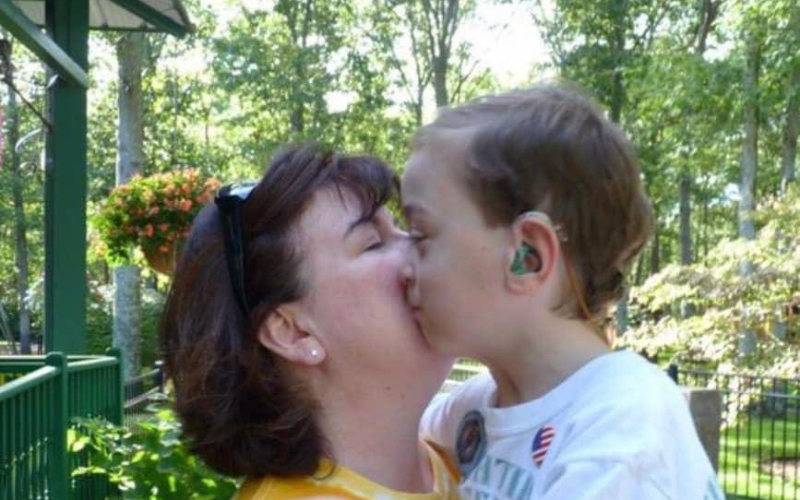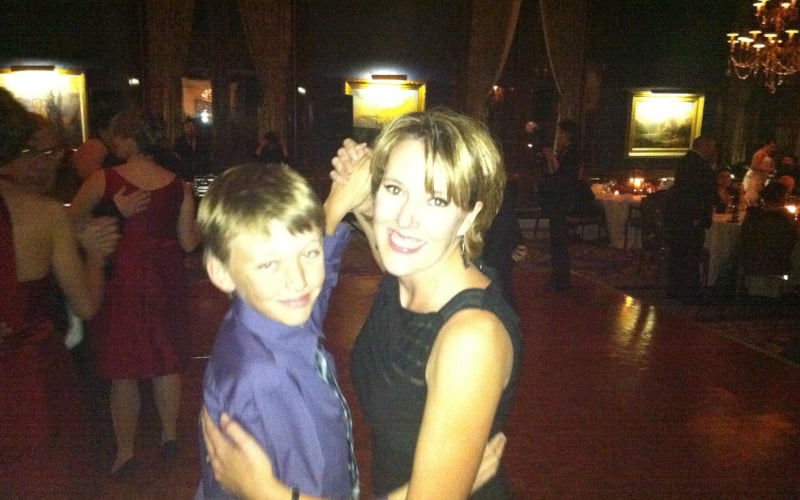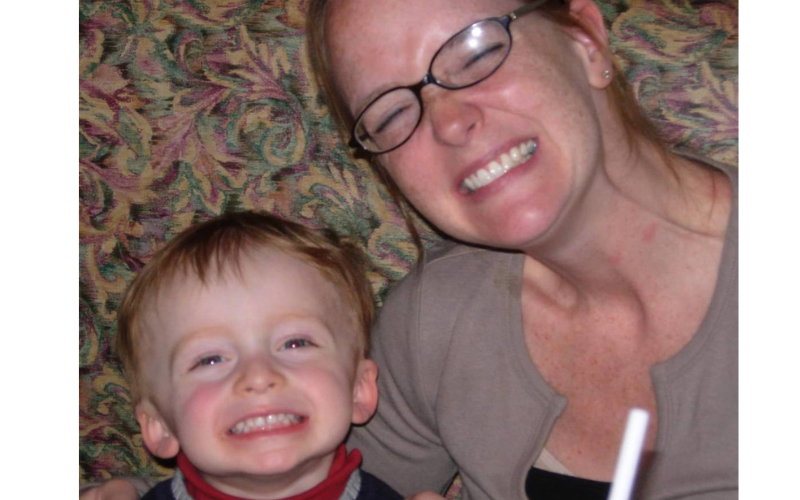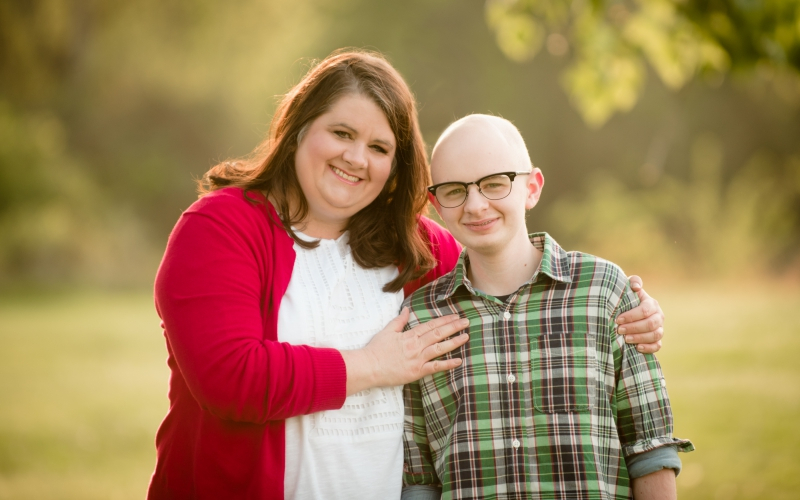By: Trish Adkins
When Cole died, his mom Keren Fitzgerald found herself caring for his estate and his legacy, planning the celebration of life ceremony that he would have wanted, supporting her daughters and her husband as they grieved, all while dealing with her own profound grief.
“We, moms who are grieving, must be resilient for the rest of the family. Moms are holding it all together as best as we can and patience with us is appreciated,” said Keren.
Social workers Elizabeth Spellman and Kathleen Kaib, who provide support services in one-on-one sessions and small groups at Children’s Hospital of Philadelphia, echo this same thing: grief is exhausting, isolating and unique.
“Every day can look different and it isn’t up to them. Their body and their grief often decides that,” said Elizabeth. “So consistent support over a long time is so valuable for people who feel so isolated.”
Friends and family members are often not sure how to provide the best support to their grieving loved ones. Reactions can vary from being all in and eager to do anything to help to avoiding discussions or acknowledgements of the death altogether. And while both Elizabeth and Kathleen agree that everyone’s grief is unique, one thing grieving mothers have in common is that they will mourn and grieve their child forever.
Heather, whose son, CJ died from a leukemia treatment-related infection in 2014, wants to remind people not to be afraid to talk about CJ. She doesn’t want him forgotten. CJ is forever her son.
“You aren’t reminding me about something I forgot by bringing him up, I know,” said Heather.
Here is more advice, from the experts, on how you can provide comfort and support to grieving mothers:
Say their name.
Amy’s daughter Brooke was 12 years old when she died from relapsed neuroblastoma. She won’t ever have a new photo of Brooke. “Every parent wants their child not to be forgotten. Say their name. Share memories and photos of them. Every time someone shares a photo of someone doing something to honor or remember Brooke, it makes my heart so happy,” Amy said.
Acknowledge and honor that grief looks differently for everyone.
“There are so many things I wish people knew about MY grief, but that may not be helpful to others because we all grieve so very differently,” said Dawn Talley. Dawn’s son, Elijah, died in October 2019, after a long battle with neuroblastoma. He was just 18 years old. For Dawn, hearing about happy moments in her friends’ lives doesn’t increase her sadness or make it better. “I hate that people feel like they have to temper joyous moments and milestones for my benefit. But other people might not feel that way. It may be harder for them,” she said.
Kathleen, one of the social workers mentioned above shared that friends and family should continue to include their loved one who is grieving in important events. Recognize that someone who is grieving may also need patience and space. She suggests acknowledging that an event might be challenging and that it is okay for them to not come if they are not up to it.
Just because someone appears fine, doesn’t mean they are.
When Elijah passed away and Dawn was in the early days of missing him, she struggled seeing other mothers who had also lost children that seemed okay and functional.
“It devastated me. You would think it would be comforting but it wasn’t,” said Dawn. “When I finally learned that I wasn’t going to be fine and that none of my friends were really ‘fine’ either, it was like a huge weight lifted from my shoulders. They aren’t fine. I’m not fine.”
As time has gone on, Dawn says she’s learned to live her life and build happiness around all the sorrow of missing her son. She appreciates the friends and coworkers who give her space for her grief — offering her hugs and time to talk and time to be quiet.
Show up.
After her son Declan died, Megan recalls blasting her childhood best friend early on for using the phrase “he’s in a better place.” Instead of backing away, her friend sought to understand Megan’s grief.
“She has helped carry my grief, never shying away or avoiding it. It remains the best thing anyone has and continues to do to support me,” said Megan.
Keren echoed the same feeling, noting how incredible it’s been to feel the love of those in their community; but at the same time, she's shocked at the people who haven’t shown up. “I want people to know we don’t want them to feel sorry for us or avoid speaking to us because Cole died,” she said.
Showing up can take all sorts of forms, says Elizabeth. It could be an emotional presence. It could be helping with logistics. It could be consistently reaching out. It could be a funny meme or a heart emoji sent via text.
“Leaning into the unique relationship you already have with your grieving loved one is an easy way to be there,” said Elizabeth.
Recognize that your way of understanding death is not necessarily their way.
While it is natural to want to relate to the grief of your loved one, sometimes it isn’t helpful. The CHOP social workers suggest asking and listening, especially because grief reactions can change day to day and even minute to minute. Elizabeth suggests even directly asking: “Would a distraction be helpful today or would you like to talk about how you're feeling?” and giving space for the answer.
Heather remembers her friends who showed up while CJ was in the hospital and the friends who showed up after he died and who continue to show up. “It has been about showing up without being asked. The worst thing that could happen is that it is a bad time for me and they leave, but I still love the gesture,” she said.
Kathleen also notes that what is comforting to one person isn’t necessarily comforting to someone else. Grief is different for everyone. One mother may find comfort in “I’m sorry” and another may have the exact opposite response.
Hard days are not always the expected days.
The lead up to the day can sometimes feel harder than the actual anniversary or holiday itself noted Kathleen. A friend can check in prior to days like Mother's Day, birthdays, anniversaries and other holidays, ask if their loved one wants to talk and trust whatever answer they give.
Immediate support is helpful; but don’t stop.
Keren was so thankful for all the meals and support in the early days. But grieving a child is forever. Even after the first year of milestones, there is still a lifetime of milestones ahead. Elizabeth suggests putting a calendar reminder in a week before birthdays and unique dates, so you can remember to reach out with a supportive note or gesture.
“A grieving mother never forgets. They will still be in this reality,” she said.






